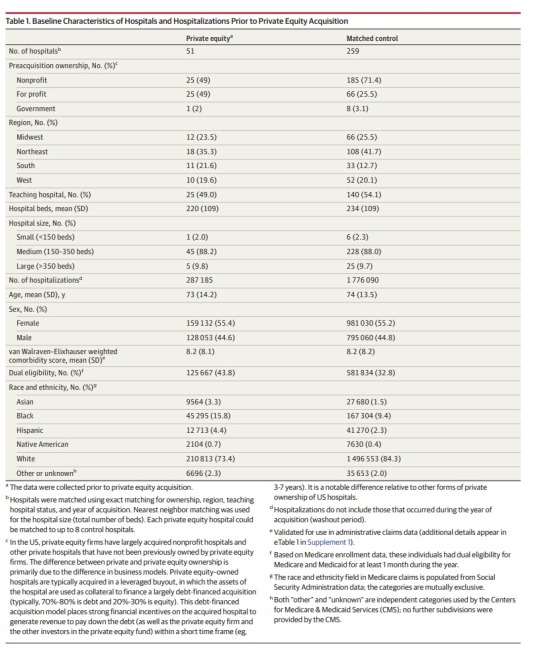#Patient Outcomes
Text
✧The Ugliness of life is that sometimes we can't undo what has been. It doesn't matter how devastating the outcome is, we can't turn back time -can't change the past- can't fix the future, what's done is done.
#life quotes#book quote#my thougts#thoughts#spilled thoughts#deep thoughts#past lives#patient outcomes#forgiveness#life cycle#real life#life#do what makes you happy
2 notes
·
View notes
Text
Non-Emergency Medical Transportation (NEMT) addresses significant healthcare challenges individuals face. For those who cannot drive or do not have access to reliable transportation, getting to medical appointments can be incredibly difficult. NEMT services ensure these individuals can access the healthcare they need. As providers of transportation services in Georgia, we have identified several key challenges that NEMT effectively addresses.
0 notes
Text
Understanding and mastering proper body mechanics is essential for healthcare professionals to ensure both their own well-being and the effective care of patients. Our dedicated CNA training program integrates comprehensive instruction on body mechanics to equip students with the skills necessary for a successful career in nursing.
0 notes
Text
Future-Proofing Procurement with EPROS & PROMS
In today's dynamic business landscape, staying ahead of the curve is crucial. This is especially true for procurement, where efficiency, cost savings, and sustainability are top priorities. Enter EPROS & PROMS, innovative solutions that leverage Artificial Intelligence (AI) to revolutionize your procurement process.
Unleash the Power of AI:
Automated Tasks: Free your team from time-consuming manual processes like sourcing, negotiation, and purchase order creation. EPROS & PROMS streamline workflows, allowing your procurement experts to focus on strategic initiatives.
Forecasting Forward: AI analyzes historical data and market trends to deliver highly accurate forecasts. This empowers you to make informed decisions regarding inventory management, budgeting, and supplier selection.
Sourcing Savvy: Identify new, more cost-effective sourcing opportunities you may have missed before. EPROS & PROMS utilize AI to analyze vast amounts of data, uncovering hidden gems in the supplier landscape.
Some data points that will prove the point
https://www.forbes.com/sites/paulnoble/2022/10/05/winds-of-change-adapting-to-procurement-change-with-artificial-intelligence/ (This Forbes article highlights the benefits of AI in procurement, such as cost savings, improved efficiency, and better decision-making.)
Embrace Sustainability:
Green Procurement Simplified: Streamline the selection and onboarding of eco-conscious suppliers. EPROS & PROMS provide tools to identify vendors aligned with your sustainability goals.
Supply Chain Transparency: Track the environmental impact of your purchases throughout the supply chain. Gain valuable insights into carbon footprint, resource usage, and waste generation.
Data-Driven Decisions: Use real-time data to make informed choices that contribute to a greener future. EPROS & PROMS empower you to measure progress and continuously improve your sustainability practices.
Data Points for Success:
This Forbes article highlights the benefits of AI in procurement, such as cost savings, improved efficiency, and better decision-making: Link to Forbes article
Conclusion
By leveraging EPROS & PROMS, you unlock significant benefits in two key areas:
Enhanced Efficiency and Cost Savings: EPROS & PROMS streamline procurement processes, leading to faster turnaround times, reduced administrative costs, and better negotiation outcomes.
Sustainable Practices and Positive Environmental Impact: EPROS & PROMS empower you to make informed decisions regarding suppliers and materials, minimizing your environmental footprint and contributing to a greener future.
This two-pronged approach delivers best outcomes for your business, boosting profitability while simultaneously aligning your operations with a more sustainable future.

0 notes
Text
The Importance of Implementing Evidence-Based Practices in Mental Health Nursing
Evidence-based practice has become a crucial component in mental health nursing, as it enables nurses to make informed decisions that prioritize patient outcomes and optimize the quality of care(Barry, 2007)(Winters & Echeverri, 2012). This approach involves the integration of the best available research evidence, clinical expertise, and patient preferences to guide clinical…
#Evidence-based Practices#mental health challenges#Mental health nursing#nurse leader#patient outcomes#psychiatic nurse
0 notes
Text
The Role of AI and Machine Learning in Enhancing Diagnostic Accuracy
Digital Health: Transforming Modern Healthcare
Understanding Digital Health
Digital health signifies a groundbreaking convergence of technology with the healthcare sector. Utilizing digital tools, the medical field is undergoing a significant transformation in the way care is delivered, accessed, and managed. This shift encompasses telehealth, wearable technology, mobile health applications, and electronic health records (EHRs), all aimed at enhancing patient outcomes, increasing efficiency, and lowering costs.
Key Elements of Digital Health
Telehealth: Connecting Patients and Providers
Telehealth is a cornerstone of digital health, utilizing telecommunications technology to provide clinical services from a distance. This includes video consultations, remote monitoring, and virtual follow-ups. The advantages are substantial:
Accessibility: Quality healthcare reaches patients in remote or underserved areas without the need for travel.
Convenience: Reduces the necessity for in-person visits, saving time and resources.
Continuity of Care: Facilitates ongoing management of chronic conditions.
Wearable Technology: Real-Time Health Monitoring
Wearable technology such as fitness trackers, smartwatches, and biosensors play a critical role in monitoring various health metrics. These devices gather data on heart rate, physical activity, sleep patterns, and more, which is essential for:
Preventive Care: Detecting potential health issues early.
Personalized Treatment: Customizing treatments based on individual health data.
Patient Engagement: Encouraging proactive health management.
Mobile Health Applications: Health Management Simplified
Mobile health apps provide functionalities ranging from medication reminders to diet tracking and mental health support. They empower users with easy access to health information and management tools. Key benefits include:
Empowerment: Puts users in control of their health information and decisions.
Education: Offers access to valuable health resources and information.
Support: Facilitates communication with healthcare providers and support networks.
Electronic Health Records (EHRs): Consolidating Patient Information
EHRs are digital versions of patient charts and are fundamental to digital health. They offer comprehensive and accurate patient information accessible to authorized healthcare providers. The benefits include:
Care Coordination: Ensures all healthcare providers have access to the same information.
Accuracy: Reduces errors associated with manual record-keeping.
Efficiency: Streamlines workflows and enhances patient care management.
The Impact of Digital Health on Healthcare
Enhancing Patient Outcomes
Digital health technologies significantly improve patient outcomes. By enabling remote monitoring and early detection of health issues, these tools facilitate preventive care and timely interventions. Patients with chronic conditions benefit greatly from continuous monitoring and personalized treatment plans.
Boosting Healthcare Efficiency
The integration of digital health solutions enhances operational efficiency within healthcare systems. Telehealth, for instance, reduces the need for physical infrastructure, while EHRs streamline administrative processes, leading to cost savings and more efficient resource use.
Reducing Healthcare Costs
Innovations in digital health help reduce healthcare costs by minimizing in-person visits, decreasing hospital readmissions, and preventing the progression of chronic diseases through early intervention. Additionally, automated systems and telehealth services lessen the burden on healthcare providers, leading to more cost-effective care delivery.
Challenges and Solutions in Digital Health Adoption
Ensuring Data Privacy and Security
A primary concern in digital health is the privacy and security of patient data. Healthcare providers must ensure that digital systems comply with regulations such as HIPAA (Health Insurance Portability and Accountability Act) and employ robust cybersecurity measures to protect sensitive information.
Achieving Integration and Interoperability
Integrating digital health technologies into existing healthcare systems can be challenging. Ensuring interoperability between various digital tools and traditional systems is crucial for seamless data sharing and efficient care coordination. Solutions include adopting standardized protocols and investing in interoperable systems.
Promoting User Adoption and Training
Effective use of digital health technologies requires that both healthcare providers and patients are willing and able to use them. Comprehensive training and support systems are necessary to ensure users are comfortable and proficient with new technologies. Educational initiatives and user-friendly interfaces can significantly improve adoption rates.
The Future of Digital Health
The future of digital health looks promising, with ongoing advancements in artificial intelligence (AI), machine learning, and blockchain technology set to further revolutionize healthcare. AI and machine learning can enhance diagnostic accuracy and treatment personalization, while blockchain technology can ensure secure and transparent health data management.
Artificial Intelligence and Machine Learning
AI and machine learning algorithms can analyze vast amounts of data to identify patterns and predict health outcomes, leading to more accurate diagnoses and personalized treatment plans. These technologies have the potential to revolutionize areas such as radiology, pathology, and drug discovery.
Blockchain Technology
Blockchain offers a decentralized and secure method for managing health records, ensuring data integrity and privacy. By providing a transparent ledger of all transactions, blockchain can prevent data breaches and enhance trust in digital health systems.
Conclusion
Digital health is reshaping the healthcare landscape, offering unprecedented opportunities to improve patient care, enhance efficiency, and reduce costs. As technology continues to evolve, the integration of digital tools in healthcare will become increasingly essential. Embracing these innovations requires overcoming challenges related to data security, system integration, and user adoption. However, the potential benefits make it a worthwhile endeavor, promising a future where healthcare is more accessible, efficient, and personalized.
#Digital Health#Telemedicine#Wearable Devices#Mobile Health Apps#Electronic Health Records#Healthcare Technology#Patient Outcomes#Healthcare Efficiency#Preventive Healthcare#Personalized Medicine#Health Data Security#AI in Healthcare#Blockchain in Healthcare#Future of Healthcare#Health Monitoring#Remote Healthcare#Digital Health Solutions#Health Technology Integration#Healthcare Cost Reduction#EHR Systems
0 notes
Text
In medical device manufacturing, the integration of Artificial Intelligence (AI) is proving to be a transformative force with compelling reasons to adopt this cutting-edge technology.
0 notes
Text
JAMA Study: Private Equity Ownership and Hospital Outcomes
Happy 2024! I trust everyone had a blessed and happy holiday season and rang in the New Year with joy and optimism.
Across the last two months of 2023, JAMA (Journal of American Medical Association) has published two studies on private equity ownership in healthcare, specifically in hospitals and SNFs. Not to accuse JAMA of having a bias but the parallel between the two studies/articles is…

View On WordPress
#Acquisitions#corporate structure#Economics#Hospitals#Industry Outlook#JAMA#Management#Market Trends#Medicaid#Medicare#Money#ownership. outcomes#Patient Care#patient experience#patient outcomes#Policy#Post-Acute#Private Equity#Quality#Strategy#Study#Trends#Washington
0 notes
Text
The Hidden Cost of Burnout in Nursing: Impact on Patient Outcomes
Nursing is more than a profession; it’s a calling that demands unwavering dedication, compassion, and resilience. However, the high-stress environment in which nurses operate can lead to a pervasive issue: burnout. This blog post examines how burnout among nurses not only affects their well-being but also has a significant, often overlooked impact on patient outcomes.
Understanding Nurse…

View On WordPress
#burnout in nursing#cause and effects of burnout#medication errors#mental health resources#missed treatments#Nurse#nurse burnout#nurses#Nursing#Patient#patient outcomes#patient satisfaction scores
0 notes
Text
Medicine Goes High-Tech: The Impact of AI on Healthcare
Introduction:
Artificial intelligence (AI) is revolutionizing the healthcare industry, making significant advancements in diagnosis, treatment, and patient care. In this blog post, we will delve into the profound impact of AI on healthcare and explore how it is reshaping the delivery of care for the tech-savvy young adults demographic.
How AI is changing healthcare:
AI is transforming…

View On WordPress
#AI#Artificial Intelligence#chatbots#Cost Savings#deep learning#Healthcare#healthcare innovation#machine learning#patient outcomes#patient satisfaction.#personalized medicine
0 notes
Text
Recognizing the connection between a robust healthcare workforce and positive patient outcomes is a quest for providers of medical staffing in St. Louis, Missouri, needs to remember to ensure that patients receive high-quality care. Here are the connections between a strong healthcare workforce and patient outcomes:
Read more: https://www.jaceanthony.com/link-between-healthcare-workforce-and-patient-outcomes
0 notes
Text
Telemedicine, or virtual visits with healthcare providers through video conferencing or phone calls, is changing how we think about healthcare.
0 notes
Text
25 Ways Healthcare Data is Revolutionizing the Healthcare Industry
An exhaustive list for healthcare and healthcareIT colleagues and friends. Happy Reading!
Healthcare data refers to the information collected from various sources in the healthcare system, including medical records, laboratory results, and insurance claims. This data can be used in numerous ways to advance healthcare and improve patient outcomes. From improving patient safety to developing personalized treatment plans, healthcare data is a valuable tool that can help healthcare…

View On WordPress
#big data in healthcare#electronic health records#health data privacy#health data security#health information technology#healthcare AI#Healthcare Analytics#healthcare blockchain#healthcare data#healthcare data ethics#healthcare data governance#healthcare data integration#healthcare data mining#healthcare data storage#healthcare data visualization#healthcare data warehousing#Healthcare Interoperability#healthcare machine learning#medical informatics#patient outcomes#personalized medicine#Population Health Management#predictive analytics in healthcare#telemedicine#wearables in healthcare
1 note
·
View note
Text
Identifying and Eliminating the Eight Types of Waste in Healthcare
In today’s healthcare industry, Lean principles have been adopted to eliminate waste and improve efficiency.
The application of lean principles in healthcare has gained popularity over the years as it enables organizations to reduce waste and increase efficiency, resulting in improved patient outcomes. In the lean methodology, waste refers to any process or activity that does not add value to…

View On WordPress
#Continuous improvement#costs#Defects#Efficiency#healthcare#inventory#motion#overprocessing#patient care#patient outcomes#productivity#talent#transportation#waiting#waste
1 note
·
View note
Text
Health informatics: An easier method of keeping tabs on the spread of infectious diseases

- By InnoNurse Staff -
A framework recently created by Calouste Gulbenkian Foundation scientists, when applied to social interaction maps, has proven valuable in studying how viruses propagate in society and how we might stop them.
Read more at Calouste Gulbenkian Foundation
///
Other recent news and insights
India: 5C Network, backed by Tata 1MG, has acquired AI healthtech startup Krayen (The Economic Times)
#health informatics#medtech#infectious diseases#virus#health tech#india#5c network#tata#tata group#ai#artificial intelligence#krayen#diagnostics#machine learning#patient outcomes
0 notes
Text
daily reminder to watch the knick if you can handle accurate depictions of botched surgeries
21 notes
·
View notes